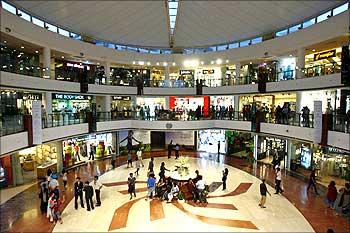
It is a myth that FDI in retail will kill at local kirana stores, instead it will help us immensely, says S Pushpavanam.
Foreign direct investment in multi-brand retail has been permitted whether the critics relish it or not.
It is a pity that Advani misled by Gurumurthy's article in The New Indian Express said that New York has shut its doors to Walmart and California has refused to let it in. Nothing can be farther from the truth.
Walmart has 6 outlets each in New York and Los Angeles and 173 outlets in the rest of California. The addresses and the phone numbers are on their website. Its growth has been steady since 1962 with 20 crore (200 million) consumers in all.
It must be noted that the group of protesters who make news are only against Walmart while they have nothing against the large presence of K-mart and Target in these cities!
In a country that believes in free trade, no one can stop a private enterprise if it is willing to go by regulations. Walmart is not a monopoly.
It faces competition from K-mart, Woolworth, Target, Macy, J.C.Penny etc., and readers will be surprised to know that Walmart also runs small grocery stores!
Walmart alone has 20 lakh employees, single largest employer in the world, not counting its competitors. To say job creation is a lie, as the critics say, is to utter an untruth.
That it will kill local kirana stores is another myth. George Orwell has written about these mega stores in England even in the 40's . It got settled down as there is a space for everything.
Even today, one could find tobacconists and small shops in Oxford street and groceries in Southhall. Best price stores –a joint venture of Bharati enterprises and Walmart, More, Reliance, Big Bazaar and Spencer's are already there in India for many years.
Only now the percentage of FDI has been increased to 51%. Our retail stores are strong enough to compete with them. In the city where I live –Tiruchirappalli - I know two examples where Nilgiris, a retail chain set shop near Diraviyam stores in cantonment, a traditional grocer and in Thillainagar where More opened an outlet near three traditional groceries. After four years, it was Nilgiris and More that shut shop.
We need investments. Rotting grains is not a rarity in our country. We are unable to stop the 33% wastage in agricultural and horticulture products. We do not have the money to build godowns and cold storages, and acquire modern trucks.
FDI in retail will help us to an extent. Farmers will get a better price by sheer avoidance of wastage and by volumes. Not one but a host of buyers will queue up. Transfer of supply chain technology will be a great benefit.
Democracy is about choices. A consumer is to economics what a voter is to politics. We must leave it to the consumer to decide if they are going to patronize the chain stores or not.
Competition is best for consumers. It gives him variety, choice, better price and better quality. In these stores, consumers get variety, right to choose, fast service, cheaper products, with a wealth of information about them in an air-conditioned ambience.
Fixed price, assured quality, easy return policy and a good complaint system and use of credit/debit cards are advantages. New products hit you fast. One-stop shopping and one-time parking is a great advantage.
It is up to us to choose. A Malaysian couple in the audience in one of my talks on FDI told me that if they were to buy only one product, say a blade or toothpaste, they would go to the local grocer. If they are to buy several products, say,a pair of shoes, a vessel, T-shirt ,books and vegetable etc., they would go to a mall since they do not wish to park their car five times for five different products.
Then why is there a hue and cry? Fear of the unfamiliar runs deep in our psyche and it is fanned by motivated propaganda. Just consider these three instances:
1. In 1941, there was a strike in Tiruchirappalli, Tamil Nadu by Jutkawallas (horse-drawn carriages) The reason? Town bus should not be introduced!
2. In 1945, electricity companies appointed electricity canvassers at Rs. 40 a month (princely sum) whose job was to compare the bulb with hurricane lamp and tell the people that it was easy to switch on and off and the hands would be clean and the light will not go off even in a strong wind and persuade them to subscribe to electricity. Yet people were not persuaded easily as they feared they would die of shock!
3. In recent times, remember how our trade union leaders were up in arms against computers and prevented its introduction by about 10 years saying it was a job-killer.
In 1993, when I interviewed Manmohan Singh, the then finance Minister for Thuglak, I asked him how he could allot Rs 3000 crore (Rs 30 billion) for computerisation and hope to spend it when even in the previous week, the trade union conference has opposed computerisation.
He replied that he hoped to introduce computers as the sons and daughters of trade union leaders have started attending computer classes. But we lost 10 years. What a tragedy! What a lack of foresight!
What refusal to look around! The same thing is being played around this time in FDI in retail.
Welcome reforms! Let us have more of it!
S. Pushpavanam is the Secretary of Consumer Protection Council, Tamil Nadu.